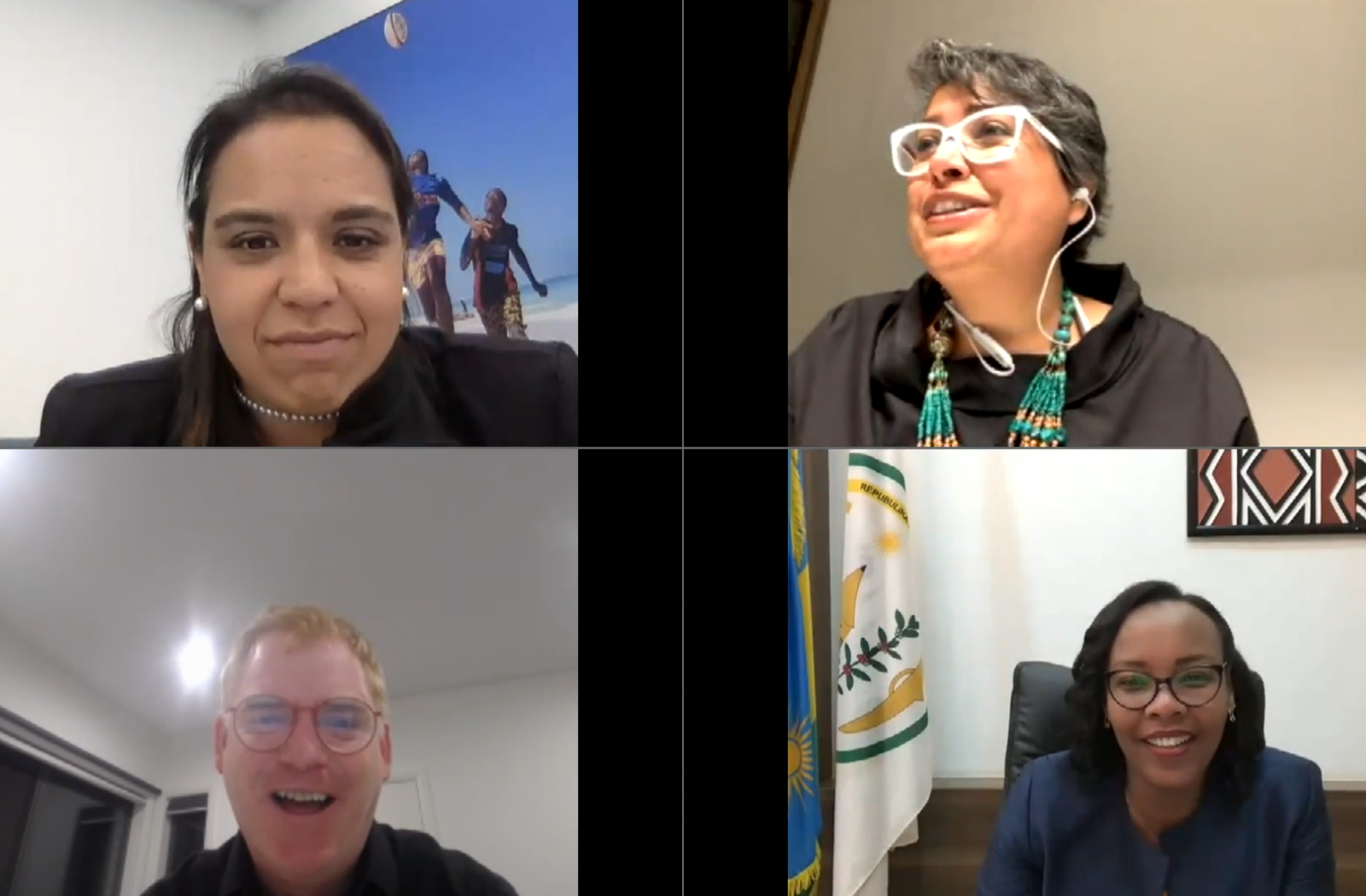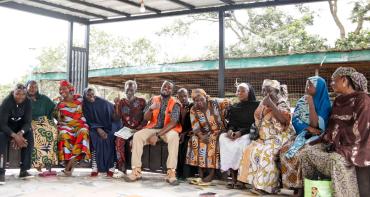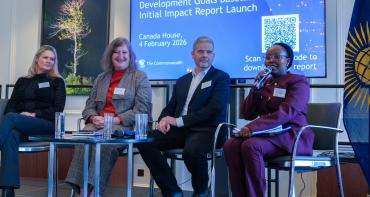The Commonwealth Secretariat has marked this year’s International Day of Sport for Development and Peace by bringing together a host of experts for a lively debate on the role of human rights in sport.

Leading figures from the sector, and over 100 attendees, came together on 31 March for a virtual debate exploring the motion: 'To ensure inclusive, equitable and safe access to sport for all, investment should only be made to organisations demonstrating complete adherence to international human rights laws and principles.’
Divided into two teams, eight panellists gave their expert views on the role of sport in achieving the Sustainable Development Goals (SDGs), as well as some of the challenges facing the sector, the welfare of athletes, and how access to physical activity can be boosted for the 2.5 billion citizens of the Commonwealth.
Sport for human rights and development
Opening the debate, Commonwealth Secretary-General, the Rt Hon Patricia Scotland QC, said: "Sport lifts us up, raises our heartbeats, inspires us, unites us. It’s at the heart of our Commonwealth family.
"As such it both shapes and reflects our societies. So it is critical that the things we want for society - peace, safety and kindness, equality, respect for human rights, health, happiness and development, run through sport.
"This is a point both of principle and policy for our Commonwealth.”
The Secretary-General added: "We all have a part to play to ensure that sport retains its positive, intrinsic values of empowerment, protection and well-being.
"As we move forward in this momentous year for the Commonwealth - with CHOGM in June and the Commonwealth Games in July - we must all come together to dig deeper and challenge ourselves to go further.
"We know that sport has the power to change lives and we commit ourselves to delivering the widest possible impact for society through sport.”
Promoting human rights in and through sport
Human rights are, of course, inalienable and recognised across the 54 member states through Commonwealth Consensus Statement on Promoting Human Rights in and through Sport, as well as many other international treaties.
That these rights should be protected and upheld for all is a commonly agreed fact and not something anyone involved in the debate was arguing against.
All the panellists reaffirmed the view that access to sport is a crucial tool for promoting peace, better health, equal rights and sustainable development across the Commonwealth’s 54 member countries – especially as governments look to rebuild following the Covid-19 pandemic.
Finding ways to engage communities in sport is vital for governments looking to help people fulfil their potential with dignity and equality in a healthy environment – but there are differing views on how best to achieve this.
Despite a Commonwealth-wide commitment to human rights, some panellists described how many individuals and groups across the world do not have access to sport. This is exacerbated by variables such as location, race, age, gender, sexual orientation, migratory status and socio-economic background, but needs to change if countries are to protect and promote inclusive and equitable rights.
Other panellists described how sport can be used as a vehicle to promote broader human rights. They cited examples where sport-based initiatives have been used to promote sexual and reproductive health and rights, especially for adolescent girls.
Sport ministers, government heads, and policy experts have all acknowledged the need for policy coherence. That said, the panellists expressed different viewpoints concerning what those in the sporting sector can do to foster environments that are committed to upholding human rights.
At a policy level, the Commonwealth Consensus Statement on Promoting Human Rights in and through Sport - that was endorsed and adopted by sports ministers - calls for inclusive and safe access to all through safeguarding.
Clause 15 states ministers resolve to: "Implement a policy of zero tolerance in sport for violence, harassment, abuse or discrimination, paying particular attention to children and groups in a situation of vulnerability. "
Commonwealth work to address human rights in sport
Further recognising the challenges in this area, the Commonwealth Secretariat is now embarking on addressing human rights in sport through key partnerships, advocacy, legislation, and development.
This includes:
- Advancing the longstanding work of the Commonwealth Advisory Body on Sport (CABOS) through widening the Working Group membership to more countries;
- Progressing our partnership with sportandev that uses the SDP Massive Open Online Course (MOOC) Toolkit course to promote a culture of learning and knowledge exchange;
- Developing Model Legislation on the Position of Trust in partnership with the Commonwealth Rule of Law team, UNICEF UK, and DLA Piper that will be tabled at the 10th Commonwealth Sports Ministers Meeting (10CSMM) in Birmingham, UK.
The panellists were also mindful of the fact that sport can also undermine human rights – and that those in the sector need to follow the mantra of 'do no harm’ and of course 'leave no one behind’.
This is necessary, if not sufficient, to ensure that human rights are protected and promoted.
The debate concluded by recognising that while progress has been made in the sector, there is still a long way to go.
The time to act is now. This year sees a seminal 12 months for the sporting sector – particularly with the Commonwealth Games due to take place in Birmingham in July.
The panellists raised lots of interesting ideas and viewpoints which will be brought forward and implemented in policy work due to be showcased at the Heads of Government Commonwealth Meeting (CHOGM) in Rwanda, in June, and the 10th Commonwealth Sports Ministers Meeting (10CSMM) - due to take place in the wings of the Games.
Watch the 6th Commonwealth Debate on Sport and Sustainable Development
Learn more about the Commonwealth’s work in sport and sustainable development
Media contact
- Amy Coles Communications Officer, Communications Division, Commonwealth Secretariat



